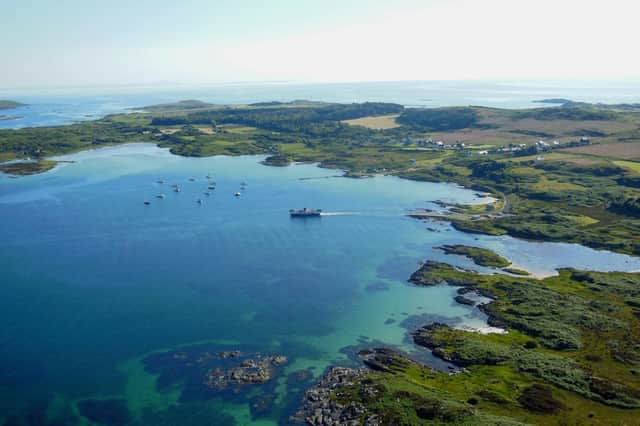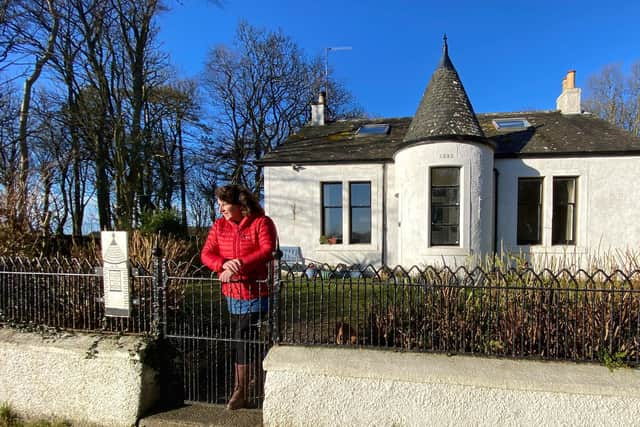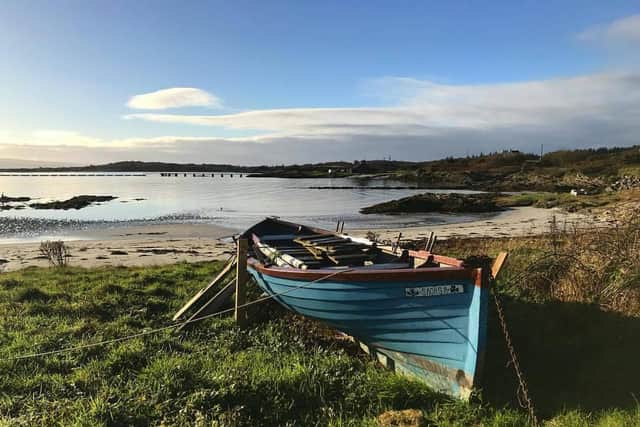Scottish island launches search for new Gaelic song to help prevent language from dying out


The Isle of Gigha, off the west coast of Kintyre, wants to commission a new song that can also be learned by non-Gaelic speakers who currently live there.
Gaelic-speaking singer-songwriters from across Scotland have the chance to create a piece of music that is aimed at reflecting the island’s long Gaelic heritage as well as the reality of modern-day life there.
Advertisement
Hide AdAdvertisement
Hide AdThe island is believed to have been one of the earliest Scots settlements in the Gaelic Kingdom of Dalriada, which from the 5th century AD occupied much of modern-day Argyll and Northern Ireland. Gigha was later part of the Norse Kingdom of the Isles and is also the ancestral home of the Clan MacNeill.
Gaelic was spoken by around three quarters of islanders at the time of the 1921 census. However, only a handful of speakers are said to be left on Gigha, despite a significant growth in its population since a community buyout 20 years ago.
The commission is being funded as part of a new Scottish Government-backed project, which aims to “reconnect” the islanders with the location’s cultural heritage, through music, song, visual arts and storytelling.
It is hoped that islanders will get the chance to learn the song on Zoom and that it is eventually recorded to feature on the soundtrack of a film, which is expected to be made as part of the Our Island project.
The brief for the song commission, which arts agency Creative Scotland is helping to promote, states: “We are looking for someone to write a Gaelic song for Gigha which we can learn and sing. Gaelic is not commonly spoken on Gigha and our Gaelic heritage is slipping away.”
Gigha’s population peaked at more than 800 in the 18th century, but had slumped to 98 as the 21st century began.
The 2002 community buyout has seen its population gradually increase to around 160 in recent years.
Advertisement
Hide AdAdvertisement
Hide AdGigha community musician Ellie Logan, who is leading the commissioning process for the new song, said: “We are looking for someone to write a new song for the island which reflects the Isle of Gigha today, but also reflecting and celebrating the Gaelic heritage of the island.
"We have placed a call publicly for this to encourage the Gaelic speaking songwriters to get apply to work with us on writing a new song.


"I say a new song, as I am sure many songs have been written and sung on Gigha as Gigha was once a Gaelic-speaking population.
"Like most of the Gaeltacht, Gaelic has been in decline here and we only have a handful of Gaelic speakers left on the island.
"Unlike other areas, we have been less able to reverse the decline, probably due to our proximity to the mainland and its influences as well as a growing mix of new islanders compared to indigenous. But that does not mean it has to stay that way.
“I hope that by having a song we can all learn, it can be a stepping stone to a new connection with the language and the people who spoke it.”


A message from the Editor:
Thank you for reading this article. We're more reliant on your support than ever as the shift in consumer habits brought about by coronavirus impacts our advertisers.
If you haven't already, please consider supporting our trusted, fact-checked journalism by taking out a digital subscription.
Joy Yates
Editorial Director
Comments
Want to join the conversation? Please or to comment on this article.